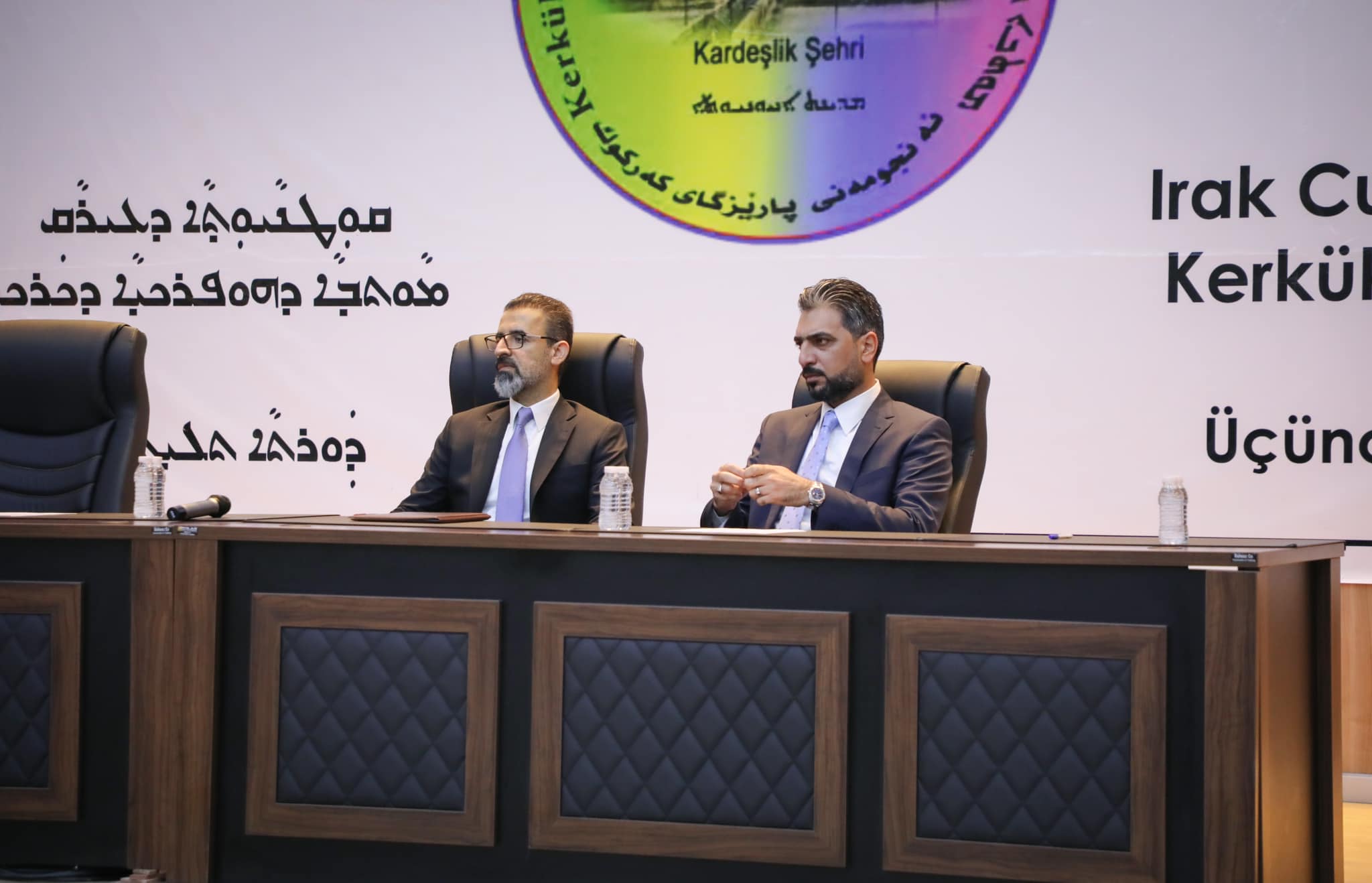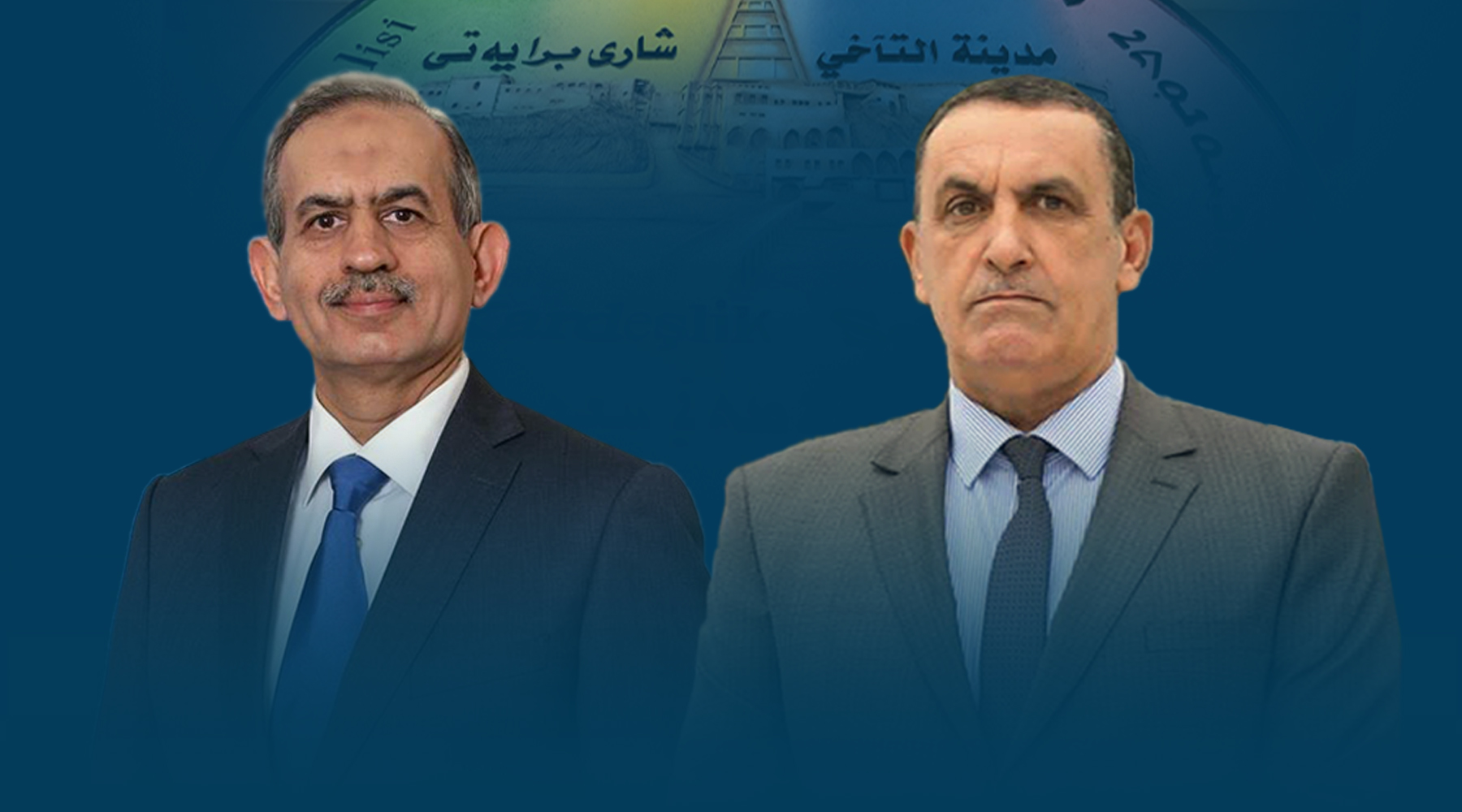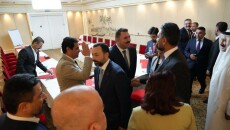The head of the Arab coalition in Kirkuk and the president of the Iraqi Turkmen Front ITF have lodged complaints with the Federal Supreme Court on behalf of the Arab and Turkmen components against the session that led to the formation of the Kirkuk local administration.
The Federal Court has scheduled its first session to review these complaints on November 6, 2024, nearly three months after the formation of the local government.
Hassan Turan, ITF's complaint was filed with Sawsan Jadoua, member of Kirkuk Provincial Council, against nine members of the council representing various blocs, including Rebwar Taha, governor of Kirkuk and Muhammad Al-Hafez, provincial council speaker. Al-Jibouri filed his complaint alone against the head of the provincial council.
The complaints focus on the cancellation of the provincial council session that took place on August 10 at the Rashid Hotel in Baghdad. This session resulted in the election of council officials, the governor and one deputy, despite the absence of seven council members who boycotted the meeting.
The opposition front in the council, consisting of the Arab coalition, the ITF, and the Kurdistan Democratic Party KDP bloc, deemed the Rashid Hotel session illegal.
Despite previous requests to halt the proceedings of the Kirkuk Provincial Council session in Baghdad being rejected by the Federal Court on August 20, the complaints will now be reviewed in November.
The northern, oil-rich, ethnically mixed province of Kirkuk is home to about 1,77 million Kurds, Turkmen, and Arabs. Located 238 kilometers north of Baghdad, Kirkuk is an ethnically mixed province and has long been at the center of disputes between the federal government in Baghdad and the Kurdistan Regional Government KRG.

On December 18, 2023, Kirkuk people participated in electing their representatives in the provincial council for the first time in 18 years, but disagreements between the blocs over the distribution of positions, especially the positions of governor and council president, and the boycott of some blocs prevented the council from holding its regular sessions and exercising its duties, including oversight and budget preparation.
The Arab coalition has been advocating for Al-Jibouri to be appointed as governor, citing historical power dynamics in Kirkuk. Prior to 2003, during the Ba'ath regime, the Arab community held most administrative positions in Kirkuk without elections. Since 2003, power has shifted to the Kurds, who held executive power until now.
The distribution of positions and fair representation of all components in the province are crucial issues that need to be addressed for the council to effectively carry out its duties, says Provincial council elections law regarding Kirkuk province
The Kurdish community, holding seven seats, has long sought the governor's post, while the Arab community, with six seats, especially the Arab coalition led by Al-Jibouri, has been vying for the position. Al-Jibouri, who was appointed governor after the events of October 16, 2017, previously served as deputy governor. The Turkmen as the third ethnicity in Iraq propose to rotate the position among the three main components of the province.
The first governor of Kirkuk after the 2005 provincial council elections was Abdulrahman Mustafa from the Kurdish side. In 2011, Najmaddin Karim, a leader of PUK, was appointed governor up to 2017 when he was ousted by the Iraqi parliament for supporting Kurdish referendum for independence.
The Kirkuk Provincial Council consists of 16 seats, with seven seats for the Kurds (five seats for the Patriotic Union of Kurdistan PUK and two seats for the KDP), six seats for the Arab component (the Arab Alliance in Kirkuk has 3 seats, the Leadership has two seats, and the Arabism Alliance has one seat), while the Turkmen won two seats, in addition to the quota seat for the Christians. At least nine members are required to attend the first session to complete quorum.
The highest legislative and supervisory authority within the boundaries of the local administration shall be with the Kirkuk Provincial Council, which has the right to issue internal laws and instructions for managing the affairs of the province, formulate the general policy, discuss and approve the local budget and project plans.
*This story has been produced as part of the 'Budget is Your Right' initiative, with support from the National Democratic Institute (NDI).






